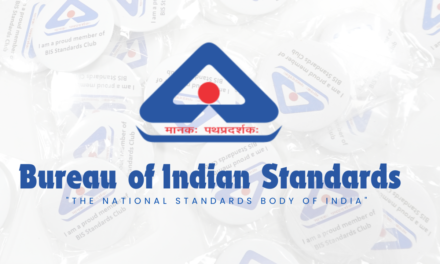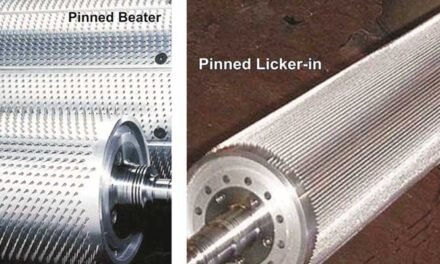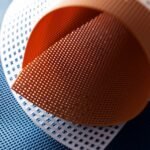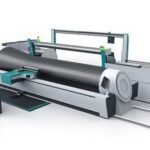What are the latest advancements in fabric technology for creating more sustainable clothing options?
In response to the growing demand for eco-friendly and sustainable clothing, the textile industry has made significant advancements in fabric technology. These innovations focus on reducing environmental impact, conserving resources, and increasing the recyclability and longevity of garments. Here are some of the latest advancements in fabric technology aimed at creating more sustainable clothing options:
1. Recycled Fabrics:
- Recycled Polyester (rPET):
- This fabric is made from post-consumer waste, such as plastic bottles or discarded garments. By recycling polyester, it reduces the need for virgin polyester production, which is energy-intensive.
- rPET fabrics have similar durability and performance to virgin polyester, and the recycling process reduces waste and lowers the carbon footprint of production.
- Recycled Cotton:
- Recycled cotton fabric is made from pre-consumer or post-consumer cotton waste, such as leftover fabric from garment production or used clothing. This reduces the amount of cotton waste that ends up in landfills.
- The recycled cotton is blended with other fibers like polyester to maintain fabric quality, making it more sustainable than using raw cotton.
2. Bio-Fabricated and Lab-Grown Materials:
- Bio-based Fabrics:
- Mushroom leather (mycelium) and bacterial cellulose are among the cutting-edge bio-fabricated materials that are produced through natural, sustainable processes. These materials can replace conventional leather and synthetic fibers in clothing production.
- Lab-Grown Silk:
- Scientists have developed lab-grown silk that mimics the natural protein structure of traditional silk without involving silkworms. This process reduces the environmental impact associated with traditional silk farming, which can harm the ecosystem and is labor-intensive.
3. Natural Fiber Innovations:
- Hemp:
- Hemp is gaining popularity as an eco-friendly fabric due to its minimal need for water, pesticides, and fertilizers. It also grows quickly and improves soil quality.
- Modern hemp fabrics are softer, more versatile, and can be blended with other fibers like cotton for enhanced comfort and durability.
- Tencel (Lyocell):
- Tencel is a sustainable fiber made from wood pulp, primarily from eucalyptus trees, and processed in a closed-loop system that minimizes water and chemical waste.
- It is biodegradable, soft, moisture-wicking, and less resource-intensive than conventional cotton.
- Bamboo Fabric:
- Bamboo fibers are made from the pulp of bamboo plants, which require no pesticides and grow quickly. The fabric is soft, breathable, and biodegradable, making it a popular choice for sustainable fashion.
- Innovations in the production process have led to more sustainable ways to produce bamboo fabrics, reducing the chemical waste associated with traditional methods.
4. Waterless Dyeing Technologies:
- Waterless Dyeing Systems:
- Traditional dyeing processes consume large amounts of water and chemicals. Waterless dyeing technologies, such as air dyeing and CO2 dyeing, use less water and reduce the environmental impact of fabric coloring.
- These technologies rely on methods like using pressurized carbon dioxide or compressed air to apply dye, which minimizes water use and waste.
5. Circular Textile Systems:
- Closed-Loop Recycling:
- Companies are investing in closed-loop textile recycling, where garments made from synthetic fibers (e.g., polyester) can be fully recycled back into new fabric, reducing waste and the need for virgin materials.
- Textile-to-textile recycling systems allow worn-out clothing to be regenerated into new fibers, which can be spun into fresh fabrics, minimizing waste and reducing the need for new resources.
6. Smart Fabrics and Wearable Technology:
- Self-Cleaning and Anti-Microbial Fabrics:
- Innovations in nanotechnology and self-cleaning fabrics are making garments more durable and longer-lasting. Fabrics that are treated with anti-microbial agents or have self-cleaning properties can reduce the frequency of washing, thus extending the garment’s life cycle and saving water.
- Wearable Tech Fabrics:
- Smart textiles are being developed to include integrated technology, such as solar cells for energy generation or sensors for monitoring health metrics. These fabrics can promote sustainability by reducing the need for additional devices or resources.
7. Eco-Friendly Finishes and Treatments:
- Non-Toxic and Water-Based Finishes:
- New advancements in eco-friendly finishes and treatments, such as water-based dyes or non-toxic stain repellents, help minimize environmental harm and exposure to harmful chemicals.
- Companies are also developing sustainable waterproofing and flame retardant treatments that are safer for both the environment and the wearer.
8. Low-Impact and Energy-Efficient Manufacturing:
- Solar-Powered Factories:
- Textile manufacturers are adopting solar energy and other renewable power sources to reduce the carbon footprint of their operations.
- Energy-efficient production processes are being implemented to reduce the overall environmental impact of fabric manufacturing.
9. Upcycled and Zero-Waste Fabrics:
- Upcycled Fabrics:
- Upcycling involves repurposing old or discarded fabrics and garments to create new textiles, reducing waste and avoiding the need for virgin resources.
- Designers and manufacturers are using upcycled fabrics from old garments, industrial scraps, and pre-consumer waste to create stylish and sustainable clothing.
- Zero-Waste Fashion:
- Zero-waste fabric technologies and designs are emerging that allow garments to be produced with minimal to no fabric waste. This is achieved through efficient pattern making, using fabric scraps, or employing fabrics that naturally require little or no cutting.







